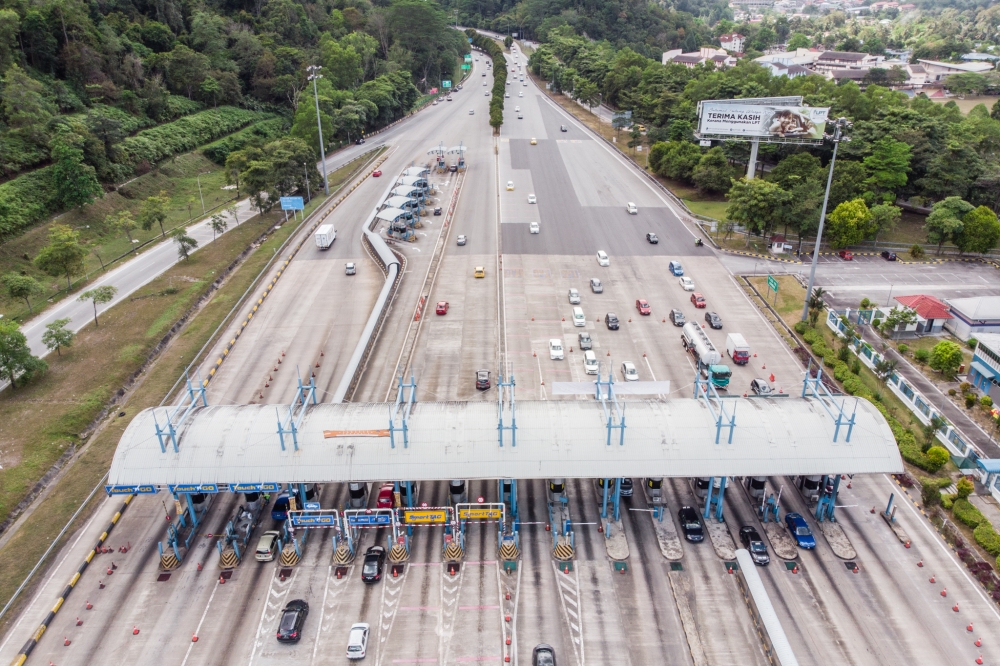KUALA LUMPUR, March 8 — The Home Ministry made the controversial decision to ban the Ultraman the Ultra Power comic book as it was unable to locate both its publisher and printer, according to an official.
Hashimah Nik Jaafar, the secretary of ministry’s Publication and Quranic Texts Control Division, said it was customary to approach the publishers over breaches of the Printing Presses and Publications Act 1984 (PPPA) before a decision is made to implement a ban.
“They can represent themselves and give us explanation, clarify to us before we proceed with the next level. They are always given a chance,” she told The Malay Mail Online when contacted yesterday.
Remedial action includes retracting the material and reprinting new copies with amendments.
“In this case, we can’t even find the publisher and printer,” she said of Ultraman the Ultra Power that was banned recently.
Hashimah told The Malay Mail Online yesterday that the ministry’s enforcement officers had stumbled upon copies of the Ultraman book in a bookshop prior to the ban.
A ministry source provided The Malay Mail Online with a photograph of the back cover of the banned Ultraman book, which bore only the address of publisher Resign Publications. No contact information whatsoever was also included for the printer Network Printers.
A visit by The Malay Mail Online to Jalan Brunei Utara in the Pudu area shown as the site of Resign Publication’s office failed to locate the lot 78 listed as its address.
A 67-year-old retiree who only wanted to be identified as Mr Wong told The Malay Mail Online yesterday that he has never seen a No. 78 shoplot.
“This is the end of the row, No. 56,” said the Pudu resident of over 40 years as he sat in the corner coffeeshop bearing the same unit number at the edge of Jalan Brunei Utara.
The Malay Mail Online’s checks on the Internet, phone directory site Yellow Pages and the Companies Commission of Malaysia’s (SSM) online database similarly failed to produce any trace of either Resign Publications or Network Printers.
According to Hashimah, the ministry can easily trace publishers who have obtained printing permits, noting that this was not the first time companies without permits used false addresses.
For now, she said the Home Ministry has reached the end of the road as no action can be taken on the unidentified publisher and printer.

The only option left is to confiscate copies of the Ultraman book that are still in bookstores, she added.
“We have already informed our enforcement officers all over the country to make sure the particular book that we banned is not on sale.”
On Thursday, the Home Ministry announced a ban that took effect on February 18 against the Malay-language version of Ultraman the Ultra Power, which was found to have breached Section 7 (1) of the PPPA.
Those found guilty of printing, publishing, selling or distributing - among other things - the banned publication will face a maximum jail term of three years or a RM20,000 fine or both.
Yesterday, the Home Ministry said in a statement that the use of “Allah” - the Arabic word for God - to describe the fictional character “Ultraman King” would confuse Muslims and weaken their faith, besides “alarming public opinion”.
It said it considered the ban necessary to prevent a threat to public order as “Allah” was a “sensitive” term whose misuse could provoke Muslims.
But civil liberties lawyer Syahredzan Johan yesterday said banning the Ultraman book was unreasonable and unjustified, pointing out the ministry did not clearly demonstrate the risk to public order.
Syahredzan told The Malay Mail Online that this case involved the exercise of the constitutionally guaranteed freedom of speech, which can only be limited if it is shown as possibly harming public order.

Even so, the action taken by the ministry should be proportionate to the offensive portion, he said.
“If you don’t want to cause confusion or it may cause public disorder, the proportionate thing is to call the publisher in, to ask the publisher to rectify, not to ban the book completely,” he said, saying that the Ultraman book was simply a case of “bad translation”.
Ultraman is a fictional Japanese superhero who fights Kaiju (monsters), and first appeared on television in the 1960s.
It later gained popularity worldwide, including in Malaysia, leading to localised versions of the TV series and comic books.



















